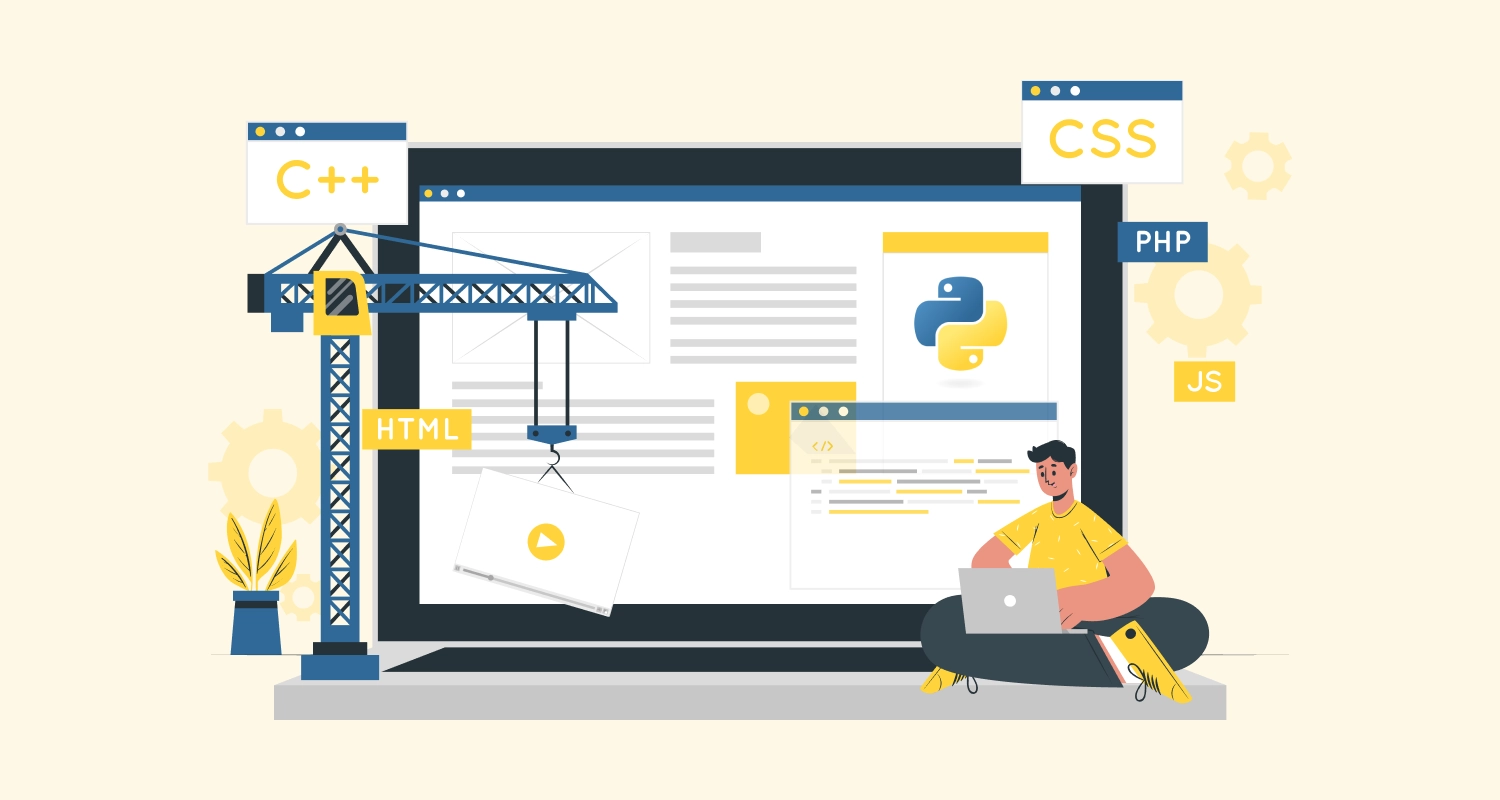Since 2009, the year of Node.JS’s inception into the world of tech and development, the platform has kept achieving milestones and remains the top tech stack choice for web developers. The top reason that attributes to the tech stack’s popularity is its high and seamless performance; when you encounter seamless Node.JS performance, you will be amazed and will surely understand why it is the top development stack choice.
But, the main question is, what exactly contributes to this high Node.JS performance that we love so much? Well, in this article, we will discuss exactly what Node.JS is, how you can perform Node.JS performance monitoring, and also how you can boost the overall app performance. So, without much beating around the bush and without further ado, let us jump right into this article and discuss all about Node.JS and its performance!
A Brief on Node.JS and Its Entry Into The World of Development
Node.JS is a popular server-side JavaScript runtime environment that revolutionized the world of web development and has become one of the most popular language choices. The framework allows developers to run their JavaScript code and make changes from the server POV without much rendering and outside the browser; moreover, the framework is also open-source, which makes seamless web development all the more easy and accessible to all.
Originally, Node.JS is built on the V8 JavaScript engine and can handle multiple requests seamlessly, which makes it the best choice for building complex web applications based on real-time requests. Another huge advantage of Node.JS, which makes it a go-to web development tool is the versatility and high functionality of the Node Package Manager or NPM; this is the extensive Node ecosystem that contains several files and libraries that you can reuse to build functional code from scratch.
Now that you have a brief idea about the benefits of using Node.JS, you must have a clear idea about why so many companies work on Node. But, we haven’t yet explored exactly what contributes to this high and seamless performance, right? Well, for that, you will have to move on to the next section without much ado; we also recommend you bookmark this blog to ensure that you have the explanation handy and can check it every time you are doubtful about your tech stack choice.
Why is Node.JS So Fast and Why Should You Choose It to Build Highly Functional Apps?
Before we explain why Node.JS is so fast and functional, let us define what exactly we mean when we say fast execution – fast execution refers to the high execution speed of different programs that can range from the calculation of Fibonacci numbers to the derivation of data from a database. Since every Node.JS development company uses the framework mainly for web development, let us discuss high execution speed in terms of web services – it refers to quick processing of requests and transmission of responses to clients as and when required.
Now, here is exactly why you should hire Node.JS developers and not consider other framework alternatives:-
- Async and single threads – When we use these terms, we mean to say that a Node.JS IO operation does not block other operations and allow users to perform multiple processes at the same time.
- Request in main thread – Irrespective of the number of web requests you make, no separate Node.JS process is created; instead, one Node.JS process runs at all times and JS code is executed in the same main thread, but other I/O operations are executed in other threads to remove delay.
- Allows JIT compilation – Since Node.JS is built on V8, the virtual machine converts source code into machine code during execution, which allows for the proper handling of “hot” functions that are used and called in the program often.
- Based on event-driven architecture – Node.JS executes code and is driven by events; to be specific, the framework uses an event loop to continuously check for events to ensure that the correct callback is triggered.
Although there are numerous reasons that contribute to the overall high Node performance, we have listed the top ones above to help you navigate it without much issues. So, now that you have a brief rundown, you can safely move on to the next section and learn where you should use Node.JS.
When Should You Use Node.JS for Your Development Needs?
One of the Node.JS best practices for developing web applications is knowing where you should use Node.JS and where you shouldn’t! So, to make it easier for you, we have mentioned all of Node.JS’s use cases below:-
- Development of Real-Time Applications – Since Node.JS has a huge library and allows quick and seamless data sync between client and server, the framework is the best choice for the development of real-time applications. Also, Node.JS can handle multiple client requests, so scalability is guaranteed.
- Event-Based Server – As real-time applications handle several real-time users and Node.JS’s server is event-driven, you can ensure that your application allows non-blocking functioning.
- Quick and Seamless Data Sync – If your application requires quick data sync between server and client, you should consider Node.JS and leverage its seamless performance capabilities.
Why is Node.JS Application Performance Monitoring So Critical?
Now that you have an idea about the different types of projects you can develop using Node.JS, we must talk about Node.JS application performance monitoring; after all, a developer’s responsibilities don’t end after they’ve built the app. Instead, they must ensure that their app is performing well (which is why monitoring is needed) and must keep improving it.
This is where Node.JS application performance monitoring comes in – the process refers to the collection of an app’s and framework’s performance data and measuring it using different metrics to ensure seamless delivery and adherence to different rules. You can also enable geographical and topological visibility to better detect issues and resolve errors, helping ensure smooth Node.JS app performance.
But, now, the next question that comes to mind is – how can you monitor your Node.JS application’s performance? Well, we have elaborated it in the next section and have also listed the best practices to follow to ensure that your app is up-to-date with the latest standards and guidelines!

How Can You Monitor Node.JS Application Performance? – Includes A List of the Best Practices to Follow
If you want to monitor Node.JS app performance, we recommend you use Middleware to do so – Middleware seamlessly integrates with every part of a Node.JS infrastructure and also offers you a complete picture of the app’s overall health and performance metrics. As soon as you install a Middleware agent, you ensure seamless tracking of your app’s metrics, events, and logs; also, you will be able to view the additional granular details to ensure that you can figure out the root cause of the errors in no time.
To help you ensure efficient Node.JS performance testing and monitoring, we have listed a few best practices that we recommend you follow:-
- Keep a note of what must be monitored and tracked – Middleware agents offer several app details but to ensure proper monitoring and testing, you must ensure that your team clearly understands the different metrics that need to be tracked. After all, collecting necessary information and removing clutter is important to ensure that your team has access to relevant information and is not burdened by irrelevant metrics.
- Set up alerts and configure them based on emergency – Often, developers cannot ensure seamless performance monitoring because Middleware agents send notifications related to non-urgent tasks; on the other hand, it is also possible that you might miss out on completing necessary tasks since urgent notification alerts might not be configured. So, we recommend you set up alerts and configure them based on the notification emergency to ensure seamless performance monitoring and testing.
- Ensure the alert POVs are properly set up – In case your Middleware is not configured to send alerts to relevant people in the team, you run a huge risk of missing out on app performance metrics and critical performance reports.
What Different Node.JS Performance Challenges Should We Prepare For?
Although Node.JS is a popular tech stack choice owing to its high performance and flexibility, you might face a few Node.JS performance challenges; but, to help you prepare for these ahead, we have listed them below:-
- Lack of Documentation – Although NPM has a great documentation, it can be difficult to find extensive official documentation; so, we recommend you ensure that your team has relevant documentation prepared well in advance.
- Code Debt – In case your team is focusing on quick development, they might stop prioritizing quality and might be focusing more on quantity which can add to the need for better code maintenance and testing later.
- Irregular App Performance Monitoring – A common issue that Node.JS development companies face is that they do not focus on regular app performance monitoring. This means that they often miss out on important data and might also have incomplete information about user preferences, behaviors, and bugs.
BONUS – Top Tips To Help You Improve Your App’s Node.JS Performance Now!
Here, we present a list of tips, frequently employed by our development teams, that you can use to enhance your Node.JS performance now:
- Reduction of Latency Time using Caching.
- Optimization of Methods that Handle Data.
- Ensuring Better Load Balancing.
- Using Timeouts to Keep Server and Client Connection Strong When In Place.
- Real-Time Monitoring of App Performance to Ensure Updated Data.
Conclusion
The high and seamless performance of Node.JS makes it a popular framework choice among web developers. We trust that you now grasp the importance of performance monitoring in Node.JS from the preceding article, and we encourage you to employ this concept for enhanced development and delivery of robustly functional applications. Should you require assistance with your Node.JS project, our proficient web development team – boasting years’ worth expertise – stands ready to provide guidance!
Frequently Asked Questions
How to improve Node.JS Performance?
To enhance Node.JS performance, consider implementing these basic steps: utilize caching and update methods for optimization. We suggest reviewing the aforementioned article; after all, it offers additional insights into enhancing your app’s efficiency in Node.JS.
What Is Node.JS and Why Is It Popular for Building Scalable Applications?
Check out the above article where we meticulously break down the myriad reasons that contribute to Node.JS’s rapid processing; but, the most significant reason is that it is an open-source framework facilitating seamless server-side JavaScript rendering and expediting web app development.
What Factors Contribute to Node.js Performance?
Some factors that contribute to overall Node.JS’s performance (explained in the article above) are – event-driven architecture and ability to handle multiple requests.
How Does the Use of Microservices Impact Node.JS Performance?
Node.JS boasts exceptional performance; however, many developers leverage microservices to further enhance this capability: independent service scaling improves resource management significantly. We strongly advise engaging in a discussion with one of our seasoned developers – this will ensure expert guidance aligned specifically to your organization’s requirements and project necessities.







